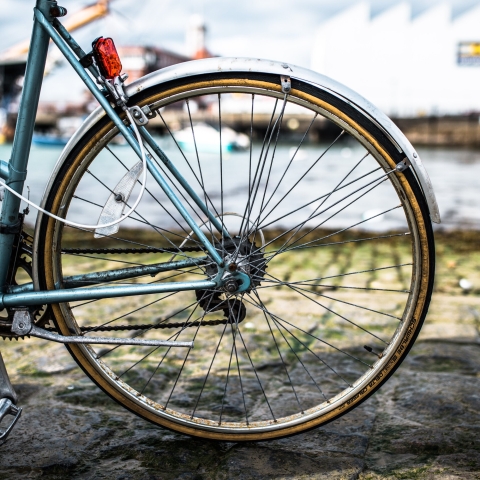
Emergencies on campus
We recommend adding the Campus Emergency number – +44 (0)23 9284 3333 – to your phone right away.
Once it's saved in your contacts, you can quickly call our Security and Surveillance team, any time of day, in the event of an emergency:
-
Emergency phone number: +44 (0)23 9284 3333
-
Emergency internal extension number: 3333
Emergencies off campus
If you need immediate medical advice and guidance, but you're not in a life-threatening emergency that requires an ambulance, call 111.
If you're in an emergency off campus, call the Emergency Services on 999 and ask for the ambulance, fire or police.
Campus Security and Surveillance Team
The Security and Surveillance Team aims to provide you with a safe and secure environment to live and study in. They are your main contact for emergencies on campus. The team is available 24 hours a day, throughout the year, for both emergencies and non-emergency queries.
Reporting non-emergency situations on campus
You can contact our security officers in a non-emergency situation by calling our control room team. Our security officers also attend events and respond to calls.
Control room team
Our main control room is staffed 24 hours a day by security officers who are a contact point for students, staff, visitors and the public.
The Central Alarm Monitoring System (CAMS) is also in the control room. It monitors fire, intruders, personal attacks, the lift system and environmental activation from alarm systems across campus 24/7.
- Control room phone number: +44 (0)23 9284 3418
- Control room internal extension: 3418
- Email: campus.security@port.ac.uk
- Location: Security Lodge, Waltham Street, Portsmouth, PO5 4BE
Everyday security and safety on campus
Our Security and Surveillance Team has measures in place to make sure you're studying in a safe environment.
CCTV
For your safety, there's prominent CCTV across campus. You'll find it in most of our buildings – including halls – and it's monitored by a team of Security Officers from the campus control room.
ID Cards
You'll get an ID card when you start uni. Most student and staff cards will only work in University buildings during certain hours.
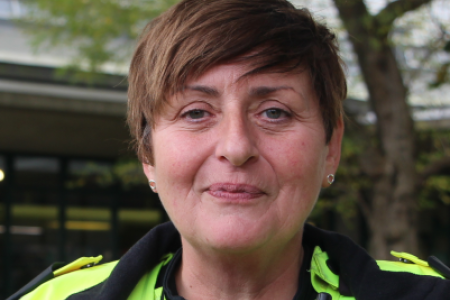
Our Police University Liaison Officer
The University's dedicated liaison officer supports students with any police-related enquiries or issues you have on campus.
Police Constable (PC) Clare Parry is an experienced police officer, who has worked extensively with victims of crime and in the community.
You can meet with Clare by dropping into her weekly ‘surgeries’ at the University Library every Thursday lunchtime from 12.00pm - 1.00pm.
She can also be contacted by email at clare.parry@hampshire.pnn.police.uk or by phone on +44 (0) 7392 289 776.
Student Watch
Student Watch is a programme that aims to improve student safety awareness and community relations. A joint initiative with the Hampshire Constabulary, it's open to all University of Portsmouth students as a volunteering opportunity and is a great way to network and build your CV.
Volunteers are a point of contact for students with safety concerns, and they are supported by the University Police Liaison Officer. Being a good neighbour, marking your property, fire safety advice, street sense and protecting your home are other issues tackled by Student Watch.
To get involved, contact the Police University Liaison Officer for more information.
Tips for staying safe at and around university
Stay safe in halls, across campus and around the city, and remember to report anything suspicious or unusual to the Safety and Surveillance team. Always follow University notices and signs.
Stay safe in your halls
- Close and lock your doors and windows
- Make sure you have adequate insurance
- Don't allow strangers into your hall or house
Stay safe on campus
- Don't leave valuable items on show
- Mark and record your property
- Lock your bicycle using a D lock and use cycle storage where possible

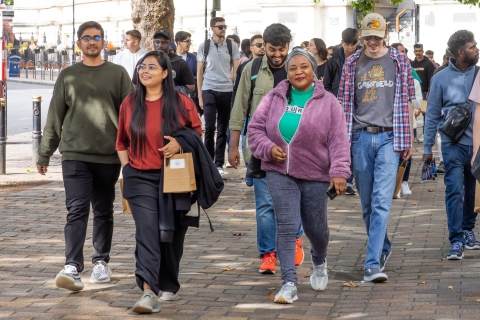
Stay safe in the city
- Walk home safely in a group and on well-lit, busy routes
- Carry a personal attack alarm, especially if you're out at night
- Plan in advance how you're going to get home from an evening out
- Only use well-marked licensed taxis and make a note of the number plate and licence number - more about taxi safety
Preventing bike theft
Cycling is a great way to get around our city campus and we have more than 1,500 cycle hoops and racks across campus, including four cycle cages that require a student or staff ID to enter.
Read more on cycling around the city and keeping your bike safe on our travel pages.
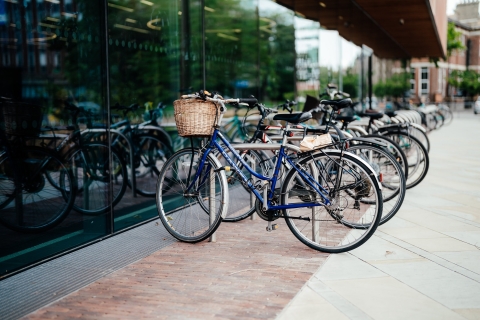
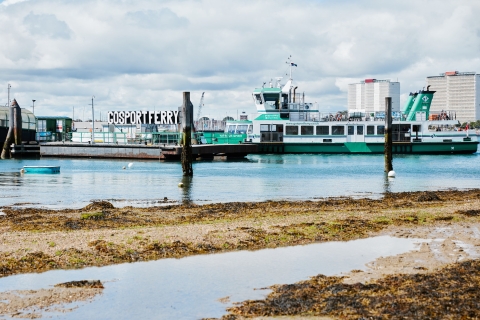
Safety on the water
Whether you're travelling around your university city or going on a weekend trip, you might end up travelling on the water. London has a river bus, and in Portsmouth we have ferries linking us to Gosport, the Isle of Wight and Hayling Island.
Some things to be mindful of:
- Let everyone off before you start getting on
- Take care when you're crossing the gangway onto the ship
- Use handrails if you're heading up or downstairs, especially during travel
- Avoid leaning over the edges of the ship
- If you're feeling unwell let a staff member know and they'll help you
Taxi and Uber safety
If you're doing a big food shop or going on a night out with friends, you'll likely get a taxi or Uber home. When you're getting a ride home, especially at night, there are some things you should do:
- Book your ride home in advance
- Find a well-lit area or taxi rank while you wait
- When your ride arrives, double-check it has the local council or business labelling on the side of the vehicle
- Ask for the driver's name and confirm your name and destination before hopping in
- Hop in the back of the cab, especially if you're travelling on your own
- Pay digitally where possible to make sure you have a record of payment
Preventing property theft
When you study and live in a busy city, it's essential not to leave your property or possessions unattended. Keep them with you or lock them out of sight.
You can register your property and get a property marking kit from Immobilise, the UK National Property Register. Mark your property before starting uni to make sure your possessions are protected from the day you arrive.
Keeping your property safe over the holidays
If you're heading home for the holidays, don’t forget to leave your term time address safe and secure. Don’t leave any expensive equipment or presents on view from your windows - take valuable items home with you if you can. Make sure the property is secured properly and try not to advertise on social media that everyone has left for Christmas, as this could make your house an easy target for burglars.
If you're establishing or have established a good relationship with your neighbours then you could ask them to keep an eye on your house while you are away – you could give your neighbours your contact details in case of problems.
It's also advisable to take precautions against any cold weather. If you can you may want to set your heating times to come on low for a few hours in the evening. If you have an electric key meter don’t forget to make sure there is enough credit on the meter to cover you whilst you are away.
Staying safe on a night out
Check out our tips on staying safe on a night out so you can make the most of it.

Safety while studying
Whether it's flying a drone, or working with chemicals, here's what you need to know when dealing with risky situations through the course of your study.
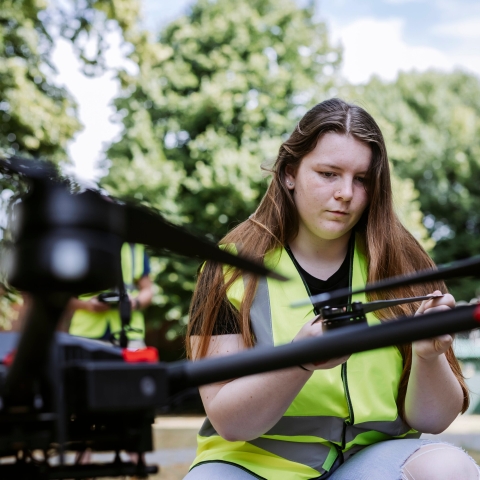
Enable University alerts
Turn on notifications for critical updates like closures, safety alerts, and urgent service disruptions.







